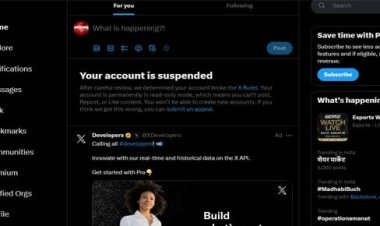If We Don't Take Cybersecurity Seriously, AI is Ready to Seriously Replace Us
In today's digital age, where our entire lives are online, we are still using incredibly weak passwords

In today's digital age, where our entire lives are online, we are still using incredibly weak passwords like “123456.” A recent report analyzing over 19 billion passwords confirms that our negligence regarding cybersecurity has now become a global crisis.
Shockingly, 94% of passwords are either repeated or based on extremely simple patterns — such as consecutive numbers on a keyboard, names, movie characters, or default words like "password" and "admin." Furthermore, nearly 42% of passwords are just 8–10 characters long, with most containing only lowercase letters and numbers, making them extremely vulnerable to brute-force attacks.
This lack of understanding isn't limited to just regular users. A report revealed that former U.S. Representative Tulsi Gabbard used the same weak password for years, based on a personally and religiously significant word like “Shraddha.” This illustrates how emotions often outweigh security concerns.
Meanwhile, the rollout of REAL ID in the United States appears to be the beginning of a new digital surveillance system. This expansion of the biometric identification system, according to many cyber experts, has become “a super surveillance tool” — also a prime target for every hacker.
Why AI is Becoming a Better Alternative
Amidst all this, Artificial Intelligence is consistently proving itself to be more reliable than humans.
AI doesn't forget passwords, Doesn't click on phishing emails, And doesn't keep its login as “tonystark123.”
Therefore, companies are rapidly assigning responsibilities to AI — not just in security, but in every corner of the workplace. Microsoft states that AI now writes 30% of its code, and Meta aims to increase this to 50% by next year.
Fiverr CEO Micha Kaufman even said: "AI is coming for your jobs — those who don't adapt won't survive." CrowdStrike recently laid off 500 employees through automation, while Duolingo is also moving towards becoming "AI-First" by removing contractors.
The Need for Balance
Large companies like IBM, Microsoft, and Google are adopting a slightly more balanced strategy. IBM implemented AI in hundreds of HR roles but also created new jobs. Microsoft promises that AI will not replace humans but rather empower and enable them. Google is training 100,000 electricians for AI infrastructure.
Conclusion: Not Human vs. Machine, but Human + Machine
AI is not a threat, provided we update ourselves, adapt, and adopt responsible digital behavior. If we don't, nothing can stop AI from replacing us — and then this change will not be evolution, but a warning.






















